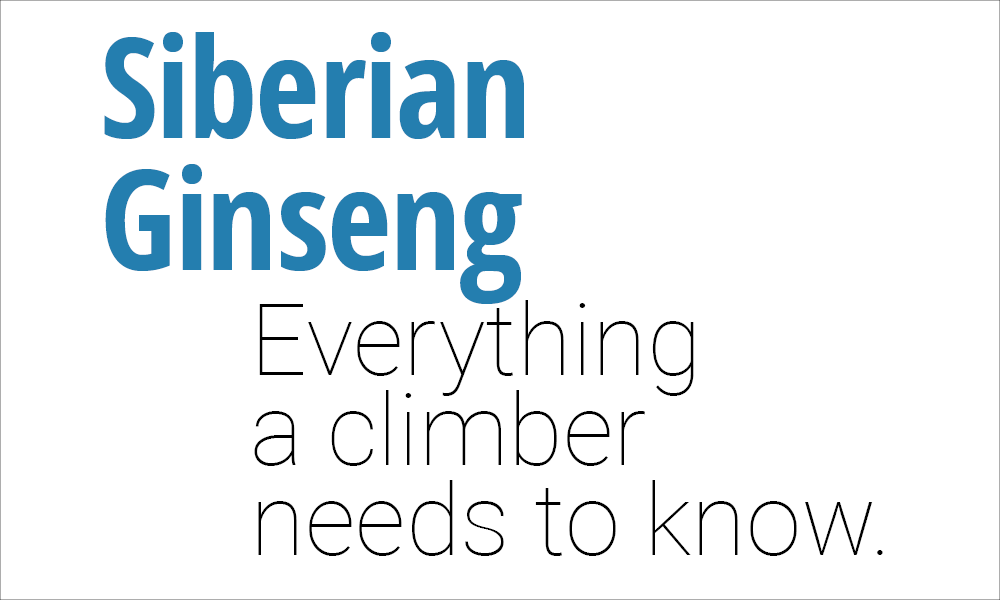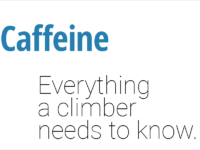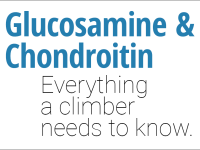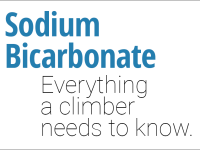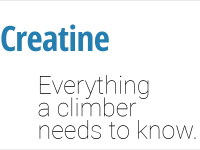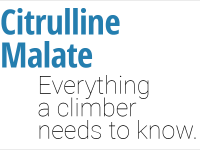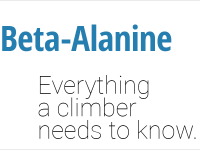Facts at a Glance
Siberian ginseng (ciwujia) is an adaptogenic herb thought to increase endurance. There are two active ingredients in the plant: the eleutherosides derived from the root and the ciwujianosides derived from the leaves; both appear to have similar effects, but only the former are commonly found in formulations. Siberian ginseng (Eleutherococcus senticosus) is in the same family as “regular” ginseng (Panax ginseng), but are otherwise not closely related.
Best For
Improving endurance in aerobic sports.
Strength of Evidence & Size of Effect
There is weak evidence that Siberian ginseng has an effect on endurance exercise, oxygen uptake, or aerobic metabolism; nearly all rigorous trials fail to demonstrate any effect, and positive trials tended to be poorly run.
Dose
800 mg is a common dose, though due to overall lack of evidence there is no official recommended dose or level or standardization.
Recommendation for Climbers
Siberian ginseng has extremely weak evidence in terms of efficacy, and the majority of well-controlled trials demonstrate zero change compared to placebo. Furthermore, there is no practical way for the consumer to judge the quality of the supplement they purchase, adding a layer of randomness to the ordeal. NOT RECOMMENDED.
What Is Siberian Ginseng?
Siberian ginseng (Eleutherococcus senticosis, sometimes called Acanthopanax senticosis) or “ciwujia” is an herbal supplement thought to improve exercise endurance, possibly through improvements in aerobic metabolism (increasing fat oxidation, decreasing glucose utilization). While it is often called “ginseng”, it is actually not particularly closely related to Panax ginseng, and in the United States it is actually illegal to market it as “Siberian ginseng”. Nonetheless, this is the most common term you will come across for this herb.
Siberian ginseng belongs to a group of herbal supplements known as “adaptogens”, which are believed to help maintain physiological homeostasis, adapting to increase hormonal levels when they are low and decrease them when they are high so they return to normal (hence the name—they “adapt”). It should be noted, however, that there is no real evidence that adaptogens, as a group, work in this manner. In other words, there may be evidence for the efficacy of any single “adaptogenic” herb, but the designation as a medical term has no meaning.
As with any herbal supplement, the benefit lies in the active ingredients. In Siberian ginseng, there are two active ingredients: the eleutherosides, which come from the root; and the ciwujianosides, which come from the leaves. Commercial supplements tend to only include the eleutherosides, but some studies suggest that the two compounds—despite being chemically distinct—have similar effects. It should also be noted that herbal supplements are only as effective as their inclusion of active compounds, which is often questionable and can make it challenging to find an acceptable supplement (or to know when one has found one).
What Are the Benefits of Siberian Ginseng?
Siberian ginseng is purported to benefit endurance exercise through a variety of mechanisms. The primary stated effect is increasing fat metabolism—that is, it increases the amount of fat an athlete can burn and thereby reduces glycogen usage. It’s also claimed to increase oxygen consumption, raise the anaerobic threshold, decrease heart rate, and reduce the accumulation of lactate in the muscle, most of which would be expected benefits of simply increasing fat metabolism but one of which (increasing oxygen consumption) seems physiologically implausible.
There are a handful of positive studies that demonstrate this effect; unfortunately, most of these studies were performed poorly. Flaws include not using double-blind trial structures, not crossing over participants between groups, not using enough subjects, and even not using a placebo group. Of the above studies, only the 2010 study published in the Chinese Journal of Physiology has an apparently robust trial structure, though it, too, only included nine total subjects.
For every positive study, there’s a negative study, however—and these studies were as a group much more methodologically sound. In fact, these studies were often done explicitly because the other studies in the field were so lacking in rigor! When examined in more scientifically rigorous conditions, Siberian ginseng was not found to have any positive benefits compared to a control.
Is Siberian Ginseng Worth It For a Climber?
What to make of the data in bulk?
Despite the single, fairly recent positive result, it looks unlikely that Siberian ginseng has a strong effect on fat metabolism or any other aspect of performance. There are not a lot of studies on the topic, so it’s possible that there is a small effect that has evaded detection in rigorous trials, but given the trend of the data we should assume the effect is either absent or so small as to be “effectively ineffective”.
There’s also the issue of ingredient quality mentioned above. Scientific labs have access to ingredients from reputable industrial manufacturers; they can be certain that the extracts they receive contain exactly what they report and are properly standardized, at least when such preparations are used (some use commercial products). The same cannot be said for commercial manufacturers. In one study of commercial herbal products, 66% substituted one or more listed ingredients for other ingredients, 59% contained herbs not listed on the label, and 33% had fillers or contaminants. Only two companies out of the twelve examined had products that contained exactly what was listed.
Furthermore, even products that have been determined to actually contain Siberian ginseng will not necessarily contain the listed amount of eleutherosides. In Siberian ginseng products, the concentration of eleutherosides varied 43-fold in capsules and 200-fold in liquids. Some contained the listed amount of eleutherosides, but most were significantly lower. Standardization could solve this problem, but we still don’t really know what an appropriate dose is, only what has been “traditionally used”—hardly an appropriate measure!
Overall, it seems unlikely that Siberian ginseng would be worthwhile for a climber. Even if it did have an effect, the type of effect would be more beneficial for endurance athletes than strength- and power-based climbers. Most likely it has no effect, though, and is therefore not worth it for any athlete.
Adverse Effects
When adverse effects are listed for Siberian ginseng, it’s usually an increase in blood pressure. This conclusion, however, is apparently based only on a couple of studies from 1966 and no further or more modern data. From more modern studies (on exercise performance), no adverse effects are widely noted, so it appears Siberian ginseng is likely safe when consumed in the recommended amounts.
Dosage
We don’t have enough data to suggest what the most effective dose would be, if there is indeed an “effective” dose at all. The dose used in most studies is 800 mg of Siberian ginseng, but no standardization information is given (some studies used commercial preparations which are notably not standardized). In fact, there is no current “standard” for standardization—if it is done at all, it’s at the manufacturer’s discretion (it is often not done).
How to Choose the Right Product
It’s difficult to choose the “right” herbal product since herbal supplement quality depends on so many behind-the-scenes factors. Unlike nutrient-based supplements (e.g., vitamins/minerals, creatine, protein, etc.)—which are composed of simple chemical ingredients or filtered food products—herb quality will depend on the growing conditions, harvest age and time, manufacturer processing, standardization, and more. Finding a reputable manufacturer should imbue trust in the rest of the process, but since manufacturer reputation depends on the rest of the process itself, it’s not easy (or perhaps even possible) for public customers to determine a manufacturer’s reliability. Quality of marketing is not an adequate measure.
Conclusion
Siberian ginseng is an herbal product that, if it worked, would potentially increase the aerobic capacity of a climber and thereby decrease their reliance on limited glycogen while improving overall performance. Studies suggest that Siberian ginseng is ineffective, however. The few positive studies are almost universally beset by methodological problems, and the studies undertaken with proper methodology have almost universally shown zero effect.
Furthermore, even if Siberian ginseng were effective, there is no way of knowing whether your product is “authentic” or adulterated, at least currently. Many herbal products do not contain the ingredients they claim to, or contain extra ingredients not listed on the label. There is also no scientifically accepted level of standardization, so an “effective dose” has not been established.
The bottom line is that Siberian ginseng is not worthwhile. It hasn’t been demonstrated to have any effect on performance, and the type of effect it is claimed to have is likely of little relevance to climbers anyway.
